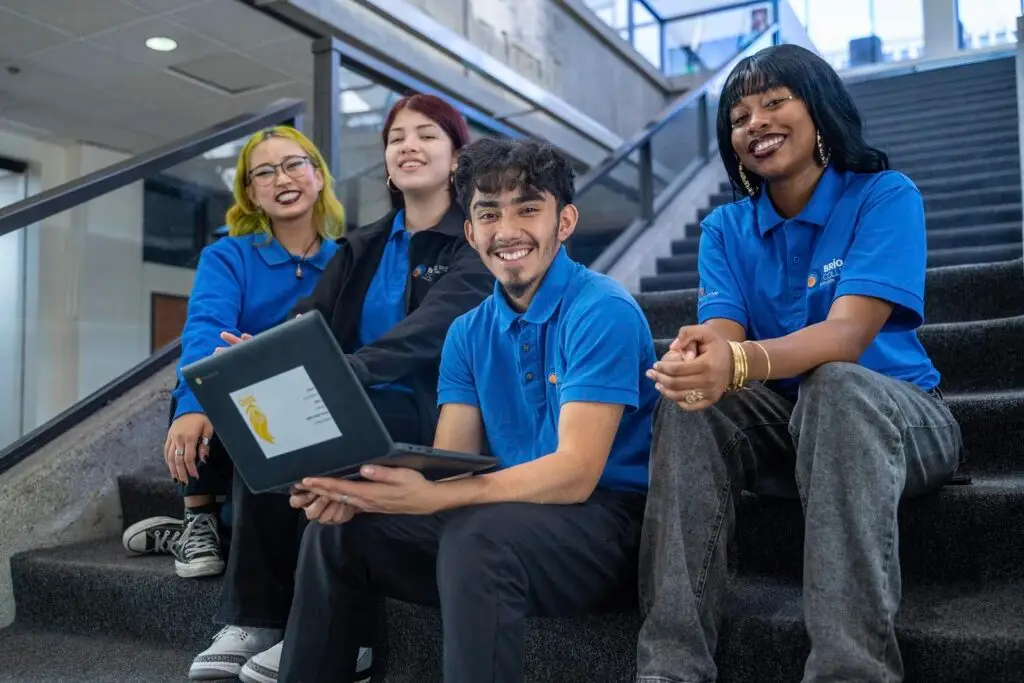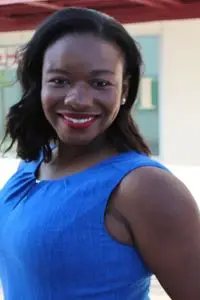Who would have expected high school students to be excited about a report card?
Ednovate Charter Schools’ new Whole Child Report Card rolled out in our seven schools this year. We knew the updated report card would provide a much more accurate, holistic perspective on how our students are doing. Grades and test scores are one way to measure students’ readiness for college and careers, but critical thinking, self-regulation, self-discipline, perseverance, and motivation are just as important—if not more so–in preparing students for success after high school. Our new report card captures these indicators.
We knew it would reinforce our overall educational approach—preparing students to be intellectually curious, to be kind to themselves and others, and to find their passions and purpose in life–all in service of creating multi-generational change. For example, our advisory system pairs students with the same teacher for four years. Meeting twice a day, students and adults are building the relational trust that’s so important for learning and growth. Our new report card more intentionally codifies what our program already does.
We knew that real-time information would make it much easier to provide timely and effective support to students. Teachers also like that the burden of support no longer falls just on them, but is spread to the school, the community, and the students themselves. The real-time dashboard helps students to take control of their own learning and make informed decisions to support their own success. Additionally, caregivers’ access to the dashboard will facilitate better communication and partnership between home and school.
But most exciting has been the response of our high school students themselves. They’re saying, “Give us more.” They’re asking for more information about year-over-year performance to look at patterns compared to earlier grades. In many ways, this isn’t surprising. We know that high school students want to be empowered and engaged, and our new report card does that. Even so, when was the last time you heard students actually get excited about a report card?
Our new report card has six indicators:
- Mastery: Passing all classes with a C- or above
- College Rigor: Meeting state proficiency levels or above
- Self-Regulation: Minimizing the need for external reminders for on-task behavior or working within a community
- Positive Multigenerational Change Hours: Minimum of 10 internship or community service hours in pursuit of one’s passions
- Critical Thinking: Solving a real-life problem within the context of various adult roles and responsibilities
- Presence: Now measuring attendance, but we’re working with Transcend to develop broader indicators of social and emotional well-being
The digital dashboards allow students to look at their own scores, while teachers and administrators can analyze the results by identity group: gender, race, IEP or ELL status, and the like. This shared information base enables us to set goals, adjust support, and collaboratively chart the student’s pathway, while simultaneously holding the student and everyone supporting the student accountable.
We’ve had challenges, including helping teachers see the benefits of such a major shift in practice and the logistical headache of turning a digital tool into downloadable PDFs.
Partnering with the University of Southern California, which took the lead in creating our public charter network in 2013, over the next few years we’ll be looking closely at questions such as: how are students, teachers, parents/guardians, and advisers using the tool; what are the most accurate and impactful SEL metrics; and most important, have we improved students’ likelihood of college success?
Our goal is for 100% of our students to be accepted to a selective four-year university and that 73% will earn a degree. Those not on a four-year path will be on track for a stable career.
We want to become a vocal leader in changing the landscape of high school education in America. That means giving every student access to the resources and support they need to succeed. It means helping them find and pursue their passion, which will put them on a path toward lifelong happiness and fulfillment. Their success, in turn, will lead to positive multi-generational change.
As the old adage says, “You get what you measure.” We’re now closer to measuring the right things.
____
Lanira Murphy is Senior Director of Academics at Ednovate Charter Schools.




